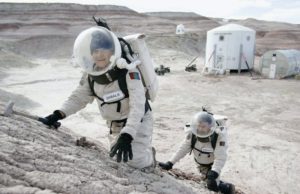The first few weeks of “shelter in place” didn’t bother me much. I’m married, so I’m not totally devoid of personal contact. I often talk with my close friends by phone and over Facebook, and I’ve been catching up on overdue housework and getting a fair amount of writing done. But as of this last week, the lack of face-to-face contact with my friends and my sons is wearing me down. I can’t focus to write, my exercise routine went in the toilet, and I’m suffering from an overall feeling of frustration.
I know I’m not alone in these feelings. Some people battled depression at the beginning, some weathered it well for a while, but like me, are finding their coping skills wearing thin. Until the last five years, most of my “friendships” were workplace acquaintances. My co-workers and I got to know each other pretty well, but rarely socialized outside of the workplace. I had a close-knit family—my husband and two sons, my mother and my sister, with whom I was very close. That was pretty much all I needed.
My mother passed away almost twenty years ago, and my sister a little over a year ago. My sons have moved to another city about sixty miles away, though under normal circumstances, I see them almost every weekend. But my day-to-day support circle has dwindled to just my husband. Therefore, new friends with whom I share the joys and tribulations of the writing profession have become much more important to me.
So, I found the following article by Inga Popovaite, Ph.D. Candidate in Sociology, University of Iowa, very interesting. It was posted by EarthSky Voices in Human World, April 23, 2020, (www.earthsky.org). (Earthsky republished it from The Conversation under a Creative Commons license).
Dr. Popovaite writes:
Understanding isolation’s effects on regular people, rather than those certified to have ‘the right stuff,’ will help prepare us for the future, whether another pandemic or interplanetary space travel.
I was supposed to travel to “Mars” this month. The plan was to stay two weeks at the Mars Desert Research Station—actually in the Utah desert—to simulate human operations on the red planet. Eight of us were to live in a two-story cylinder, 24 feet (7 meters) in diameter. We would conserve water and put on mock spacesuits every time we ventured outside. (Image via George Frey/ Getty Images News/Getty Images, reprinted on www.earthsky.org.)
But, in an ironic twist, the coronavirus pandemic and the worldwide spread of social distancing put on hold our simulation of isolation on Mars.
My main goal had been to collect data for my dissertation. I research groups in space analog environments, isolated and confined places that share characteristics with human space missions. I’m especially interested in the way gender contributes to individuals’ influence within a group and how men and women manage their emotions in isolation and confinement.
 (Image via David Howells/ Corbis Historical/Getty Images, reprinted on www.earthsky.org.)
(Image via David Howells/ Corbis Historical/Getty Images, reprinted on www.earthsky.org.)
I will not go to “Mars” this spring. As I am self-isolating at home, though, I keep thinking about what lessons for future space travel the current situation can provide. Astronauts have shared tips on how to survive long periods of loneliness and isolation. Maybe in return, the experiences of millions living under lockdown can offer insights into previously understudied social effects of isolation and aid future space travel….the more researchers understand the social effects of isolation on regular people – as opposed to those certified to have “the right stuff” – the better we will be prepared for the future, whether another wave of pandemic or interplanetary space travel.
Most group behavior research in space and space-analog environments focuses on leadership, cohesion, and conflict—factors that affect teams’ performance and their ability to complete tasks. It makes sense, as astronauts are first and foremost a team of co-workers on a specific mission.
But, by focusing on the professional level, researchers overlook other potential relationships between crew members – such as family ties or intimacy. It is not a minor detail: Interpersonal relationships can certainly change dynamics of group behavior. If you’ve ever shared a workplace with a romantic couple, for instance, you probably know there can be some drama.
So far, only one married couple has been to space. Researchers suggest that couples are better equipped to handle isolation because of mutual social support. Having couples on board makes the team feel closer as a whole.
However, anecdotal evidence from China suggests that divorce rates jumped after the quarantine. This factoid suggests that it’s not clear whether average real-world couples are better suited for isolation than single individuals.
Now, researchers like me have an opportunity to understand how couple dynamics influence life in isolation – including sex and sexuality, questions that NASA is not eager to address. While pregnancy can be dangerous, intimacy and sexuality can improve emotional and mental well-being over long periods of social isolation…. Men and women have the same general goal – to survive the pandemic and its aftermath – but they experience the quarantine differently. In most middle-class families, the traditional work-home divide is now gone, as both partners work from home. But women are still likely to spend more time running the household, including child and elderly care.
While at this stage there are no screaming toddlers in space, space-analog research shows similar trends of women taking care of other crew members. The widespread lockdown could allow researchers to get more data on how social norms and expectations about each gender—for example, who is supposed to offer more emotional support—influence behavior in mixed-gender groups in highly uncertain and stressful situations.
There is no doubt that coronavirus-caused social isolation will take a toll on individual and collective mental health. But staying home saves lives. Maybe this experience will also provide lessons on how to plan for future cities and social life on another planet.
As writers, we draw from our own experiences, even when creating fantasy or alien characters. So use this difficult time in your life to explore your own emotions and reactions, and those of the people around you, to lend more depth to your characters in crisis.
